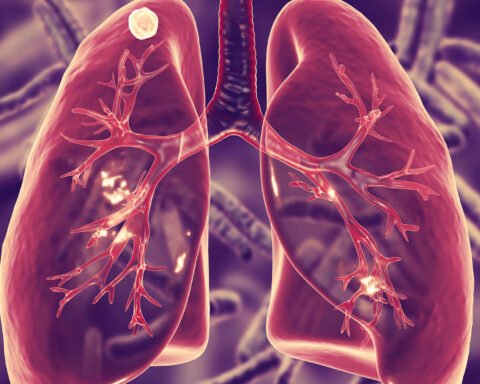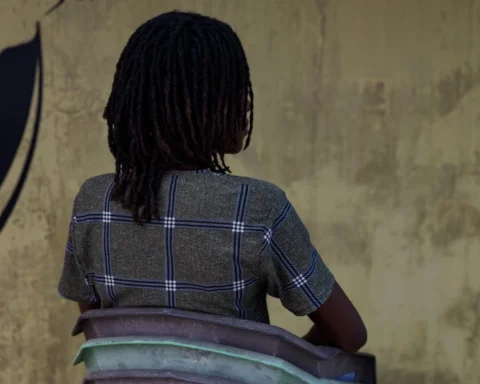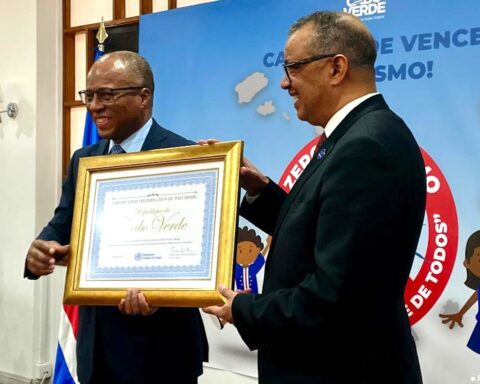Being told her baby, Lesedi, was born without the HIV virus was “probably the happiest news I’ve heard”, says Neo Goitsemang, a street vendor. “The relief, from the guilt and fear, was unmatched.”
Lesedi, from Selebi-Phikwe, a mining town in the east of Botswana, was born just months after her 35-year-old mother learned she was HIV positive. “What frightened me the most was the idea of ruining my baby’s life before she was even born, by passing the virus on to her.”
According to the World Health Organization, Goitsemang had a 15% to 45% chance of passing the virus on to her daughter. Very few babies now born in Selebi-Phikwe to women with the virus are HIV positive thanks to a national campaign to stop mother-to-child transmissions in a country that once had the highest HIV prevalence rate in the world.
In 1999, the government launched its Prevention of Mother-To-Child Transmission (PMTCT) programme. Pregnant women are encouraged to get tested and are immediately put on antiretroviral therapy (ART) if they are HIV positive. Their babies are given ART for up to six weeks after birth. Women who are negative are retested during pregnancy and while breastfeeding.
More than two decades on, Botswana, which still has a high adult HIV prevalence rate of 20% – with most of the cases among women – is on its way to becoming the first African country to eliminate mother-to-child transmissions.
Transmission rates have fallen from 40% in 1999 to below 1% last year, which the WHO called a “groundbreaking achievement”. Seven health districts recorded no transmissions in 2021. HIV testing among pregnant women has risen across the country from 49% in 2002 to 98% in 2021, while the number of pregnant women on ART increased from 27% in 2002 to 98% last year.
In December, Botswana became the first high-burden country to receive the WHO’s silver tier award for its efforts to cut child transmission rates. “There is no doubt that the country is on the right path,” says Christopher Nyanga, of Botswana’s health ministry.
In Central District, the country’s largest, where Selebi-Phikwe is located, just four babies have tested positive so far this year – less than 1% of the total births and down from 3% in 2019.
Dr Kaite Mashini, from the district’s health team, said the achievement was thanks to a community education programme – including house calls to encourage pregnant women to register with local health authorities – free HIV testing and free treatment.
“When a newborn baby tests HIV negative, we’re very much part of this victory against the virus. We celebrate the news with the mother, and are celebrated by the community for the role we do,” Mashini says.
“It is painful for a mother to deliver an HIV-positive child. It is a burden that she would want to avoid, and it’s a blessing to be able to help save them from it.”
Arone Masilo, the district’s HIV counsellor, says most of the women who test positive adhere to treatment, “which makes our job easy as health workers”.
“Those who do refuse are very few, and it’s either because they can’t accept their own status as HIV-carriers, or lack trust in government awareness campaigns.”
Catherine Mpagase, 38, from Selebi-Phikwe, struggled to accept the news that she had contracted the virus and health workers had to persuade her to enrol on to the programme. “I’m so grateful I listened and so relieved my eight-year-old was born HIV negative,” she says. “She is healthy and stigma-free. She has a bright life ahead of her.”
Goitsemang thinks more awareness is needed. “There is still stigma attached to people living with HIV and this has the potential to discourage expectant mothers from enrolling for PMTCT despite the obvious benefits,” she says. With the government hoping for an Aids-free generation by 2030 – a UN sustainable development goal – Nyanga said more community education is planned. Spending on the programme – 30m pula (£2m) this year – is to increase, and more medicines and skilled personnel will be available for the last push, he says.
“As a heavily HIV-burdened country, it will take some time for Botswana to completely eliminate mother-to-child transmission. However, the country is certainly on the right path.” – The Guardian










